IFF VPN Village 2020: Difference between revisions
| (2 intermediate revisions by the same user not shown) | |||
| Line 26: | Line 26: | ||
[[File:industry_standards.png|left|100px]]'''[[Industry_Standards_Collaborative_Conversation|Industry Standards Collaborative | [[File:industry_standards.png|left|100px]]'''[[Industry_Standards_Collaborative_Conversation|Industry Standards Collaborative Conversation]]''' | ||
This workshop brought together community leaders working on VPN issues who engaged in a collaborative discussion on industry standards, and mapping of issues activists and journalists will face in coming years. [[Industry_Standards_Collaborative_Conversation|See Notes]]''' | This workshop brought together community leaders working on VPN issues who engaged in a collaborative discussion on industry standards, and mapping of issues activists and journalists will face in coming years. [[Industry_Standards_Collaborative_Conversation|See Notes]]''' | ||
| Line 34: | Line 34: | ||
This Glitter Meetup served as a Q&A with TunnelBear’s Rodrigue Hajjar, the Director of VPN where participants talked about the great things, the issues and challenges they have been encountering in the field in regards to TunnelBear. [[October 8 2020 GM|See Notes]]''' | This Glitter Meetup served as a Q&A with TunnelBear’s Rodrigue Hajjar, the Director of VPN where participants talked about the great things, the issues and challenges they have been encountering in the field in regards to TunnelBear. [[October 8 2020 GM|See Notes]]''' | ||
[[File:Civicsphere_VPN.png|left|100px]]'''[[Civilsphere's Emergency VPN: Analyzing Mobile Network Traffic to Detect Digital Threats]]''' | |||
Veronica Valeros, Co-founder of MasterLab Hackerspace, shared her work on Emergency VPN, a solution developed as part of the Civilsphere project at the Czech Technical University, designed to provide a free and high quality security assessment of the network traffic of a mobile device. [[Civilsphere's Emergency VPN: Analyzing Mobile Network Traffic to Detect Digital Threats|See Notes]]''' | |||
[[File:VPN & Policy Small.png|left|100px]]'''[[VPN & Policy]]''' | |||
More and more countries are passing laws that criminalize the usage of VPNs. For this two-hour workshop, different policy makers shared the various strategies and legal frameworks being used to counter this growing criminalization. We examined the impact on the VPN industry, how (or if) they have changed their business model, and challenges rising in the future. [[VPN & Policy|See Notes]]''' | |||
Latest revision as of 15:58, 12 January 2021
VPN Village Description
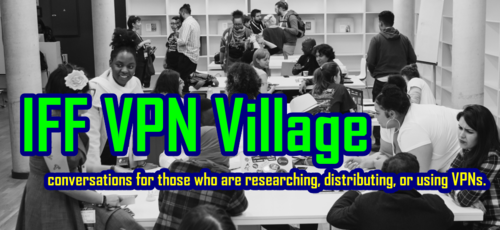
IFF’s virtual VPN Village took place this Fall. The Village, a combination of private and public events, was hosted with ARTICLE 19’s Team Digital, and with the support of the following partners: The Calyx Institute, TunnelBear, and NordVPN, and various other allies.
VPNs (Virtual Private Network) are becoming the go-to tools for users looking to protect themselves from surveillance or to circumvent censorship. They are an essential tool for human rights defenders and journalists. However, it is often hard to choose a reliable and trustworthy VPN from the large market that includes expensive and shady providers. The VPN Village will cultivated conversations for those who are researching, distributing, or using VPNs. Workshops and trainings were centered on addressing the impact of VPNs on the Internet Freedom community, both the good and bad. The Village made space for civil society, developers, activists, and VPN companies to come together to discuss:
- The use of VPNs as part of a censorship-resilient community
- Strengths, vulnerabilities and flaws inherent in VPNs, and understanding how they impact vulnerable or marginalized populations
- Best practices and standards in the promotion and use of VPNs
- Industry standards among enterprise and community-ran VPN instances
Notes from Workshops & Events
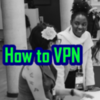
Presenter: Elijiah Waxwing, Senior Technologist at The Calyx Institute
This introductory workshop was designed for folks that wanted to understand what a VPN is, how it works, and how it differs from other tools like Tor. Participants learned what a VPN does and does not do, best use cases, and how they can pick a VPN provider that is both trustworthy and serves their needs. See Notes
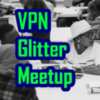
Our digital rights community provided feedback on what issues or questions they have when using VPNs in their respective regions. The goal of the meetup was to provide the community with a place to map out challenges and brainstorm on possible next steps that we can do collectively as a community. See Notes

Industry Standards Collaborative Conversation
This workshop brought together community leaders working on VPN issues who engaged in a collaborative discussion on industry standards, and mapping of issues activists and journalists will face in coming years. See Notes

Glitter Meetup: Q&A with TunnelBear
This Glitter Meetup served as a Q&A with TunnelBear’s Rodrigue Hajjar, the Director of VPN where participants talked about the great things, the issues and challenges they have been encountering in the field in regards to TunnelBear. See Notes
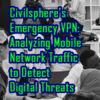
Civilsphere's Emergency VPN: Analyzing Mobile Network Traffic to Detect Digital Threats
Veronica Valeros, Co-founder of MasterLab Hackerspace, shared her work on Emergency VPN, a solution developed as part of the Civilsphere project at the Czech Technical University, designed to provide a free and high quality security assessment of the network traffic of a mobile device. See Notes
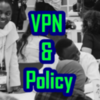
More and more countries are passing laws that criminalize the usage of VPNs. For this two-hour workshop, different policy makers shared the various strategies and legal frameworks being used to counter this growing criminalization. We examined the impact on the VPN industry, how (or if) they have changed their business model, and challenges rising in the future. See Notes